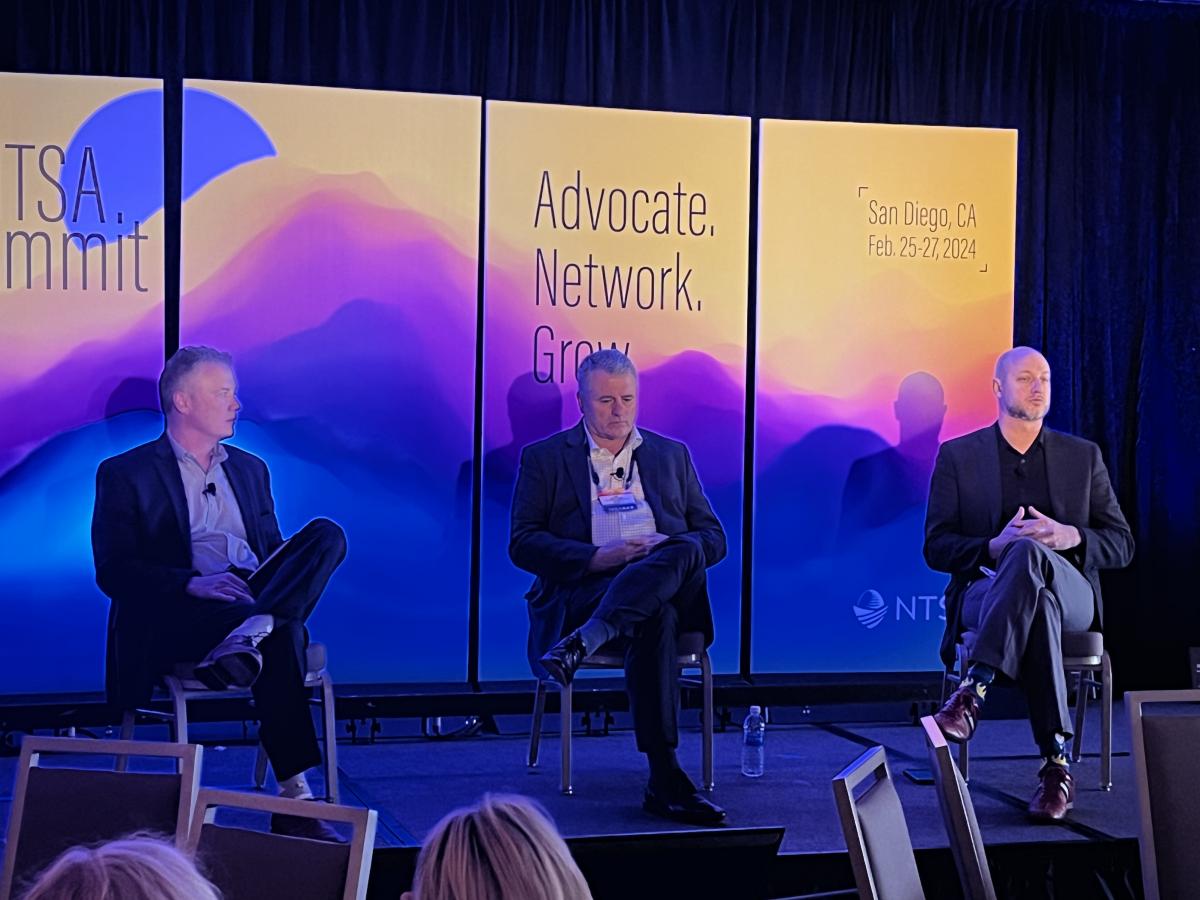The Feb. 27 closing general session in San Diego at the 35th NTSA Summit aimed to foster better communication and collaboration between advisors and school business officials (SBO).
The session, featuring Bernie Heffernon, Divisional Vice President with Equitable, and James Rowan, Executive Director with ASBO International, was moderated by NTSA Executive Director Nathan Glassey. It covered four critical points that SBOs would like advisors to know before they step on campus. 
Rowan described each in detail.
1). Know Your Audience—Rowan noted that we’re taught from a young age that first impressions are everything. We’re immediately sizing each other up and, to a degree, judging each other. That first impression can make all the difference.
“The No. 1 thing, therefore, is to know your audience,” he said. “When you set up that appointment, ensure you’re talking to the right person. And will vary district by district. I knew an individual at one time in my career who knew who the right person was but wasn’t getting the answer that they wanted. So, they decided to pivot and go around that individual to another individual. I’m not sure that relationship ever recovered. It will take several touch points and several different approaches, but understand what works for them, not necessarily what works for you, whether it’s coming in before or after school.”
2). Be Respectful of Their Time—Rowan said certain times of the year are better to approach a school than others. Most school districts’ fiscal year ends in June, so don’t show up in May and expect to be heard.
“They’re focused on trying to get the books closed, and typically, the summer is not going to work because the teacher is already gone. But you could do some outreach in the summer to set the stage. ‘What can I do over the next year to provide opportunities for your employees to make better financial, health, and wellness decisions?’ So maybe start that relationship in the summer when the teachers are off. ‘How can I bring value to you and your district?’ So, knowing your audience, respecting their time, and understanding those key areas would be helpful.
3). Educate Rather Than Sell—“Whether it’s a 403(b), 457, or something else, it’s all very confusing, especially for those who do not have a financial background. Laying it out in an understandable format helps with informed decisions. You’re not selling; you’re educating, which is huge.”
4). Relationship Building—It’s not the last point because it’s the least important, Rowan emphasized, and it all comes down to the relationship advisors have with the district, affiliate, and member. If it’s a teacher who can introduce you to others, it’s an incredibly important relationship.
“For those of you that travel around to conferences and exhibit and do educational presentations, that’s great and a recipe for success,” Rowan concluded. “But I would challenge you to find out if they go to the local watering hole after hours to throw back a couple of beers. If so, you should be there, too, starting to create that relationship. They might not need you right now, but they’ll need you down the road. If they remember you and they’ve created a relationship with you, it will be a much more comfortable conversation for them to reach out and say, ‘I’m ready. Can you come talk to me?’”
- Log in to post comments
